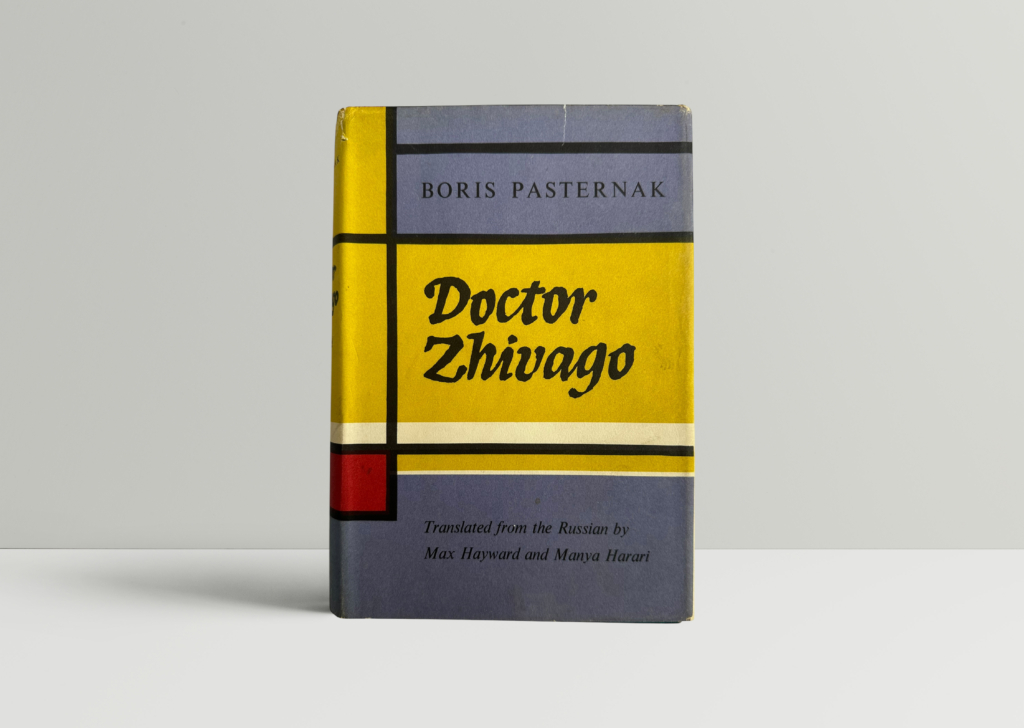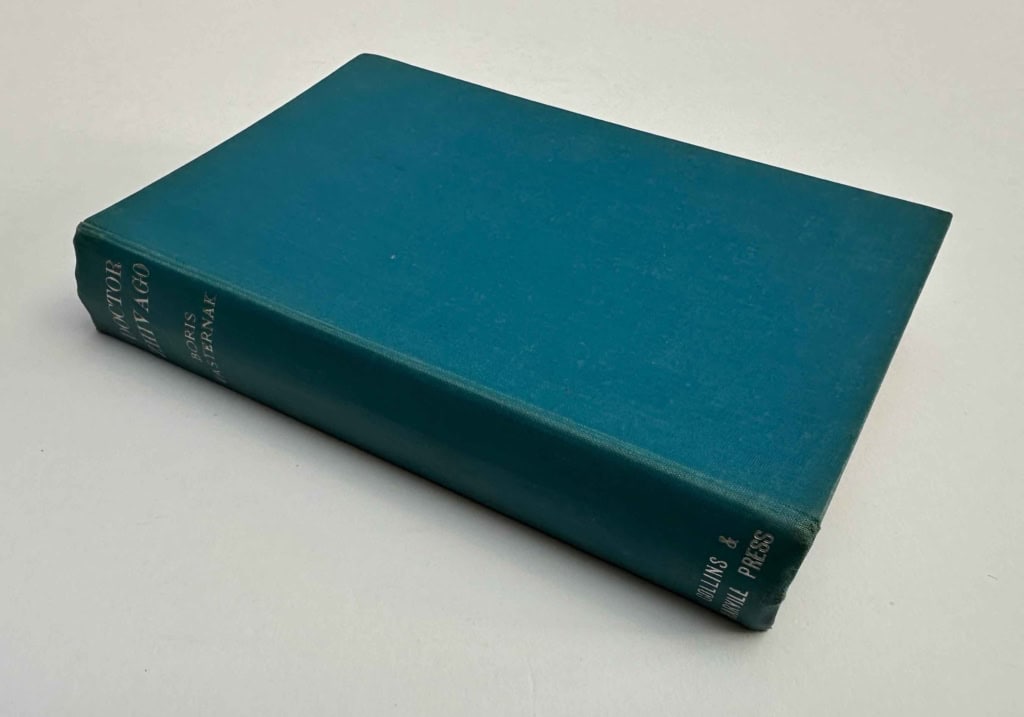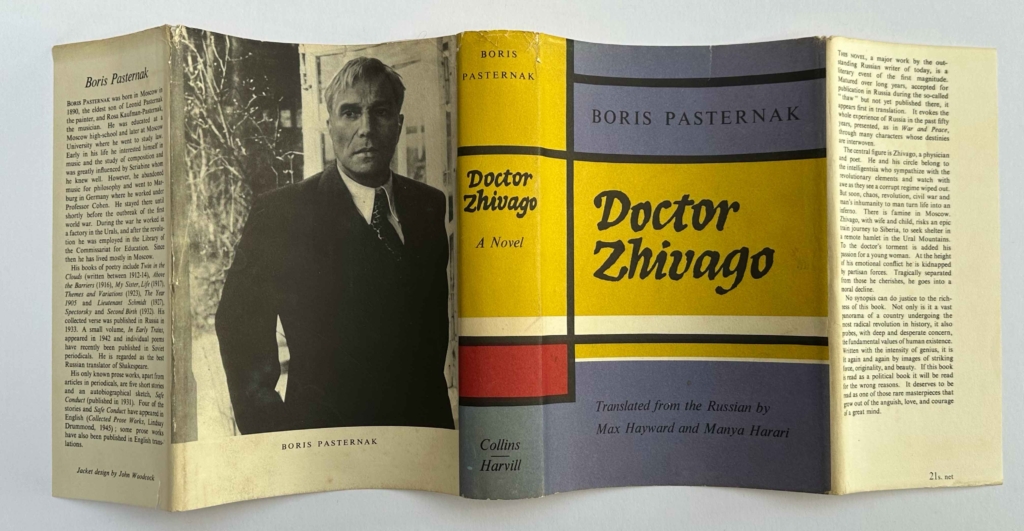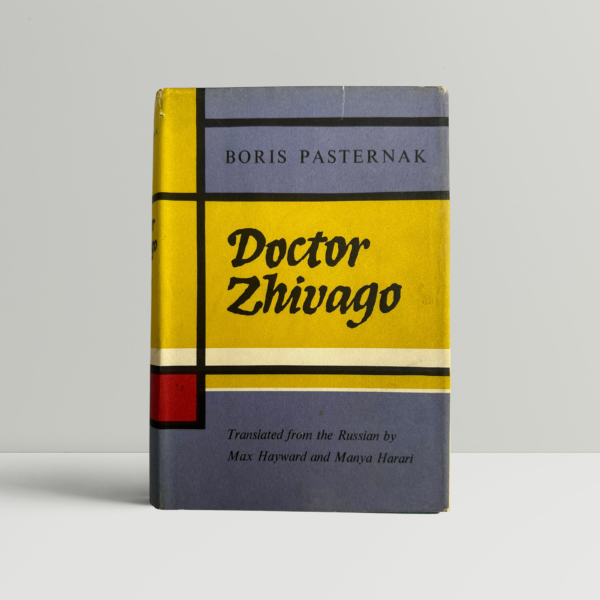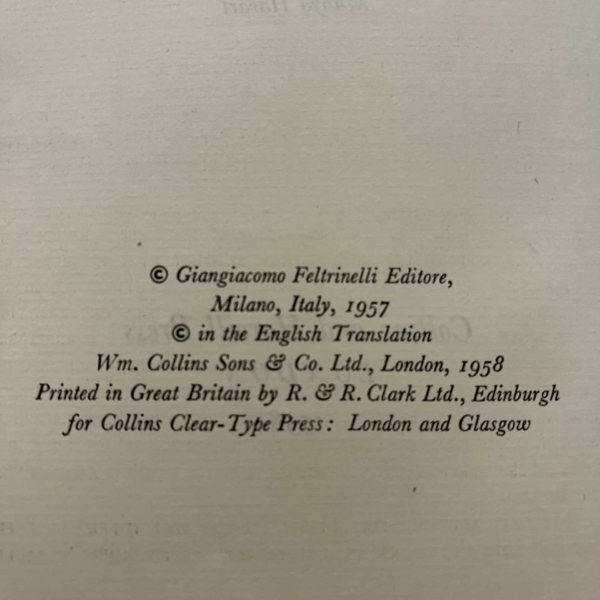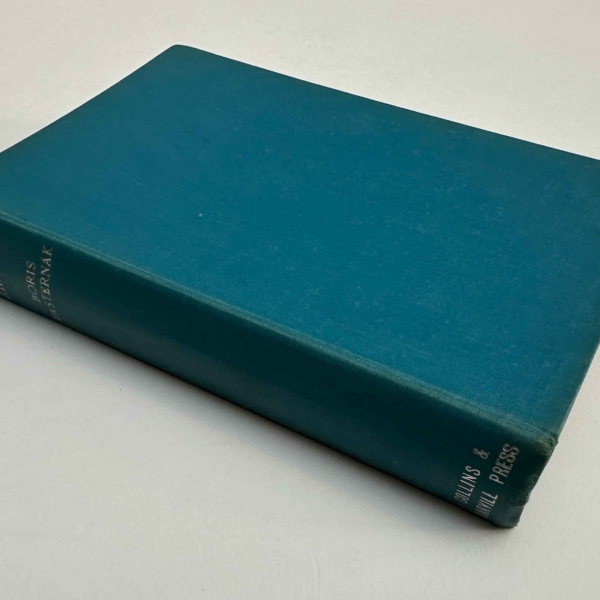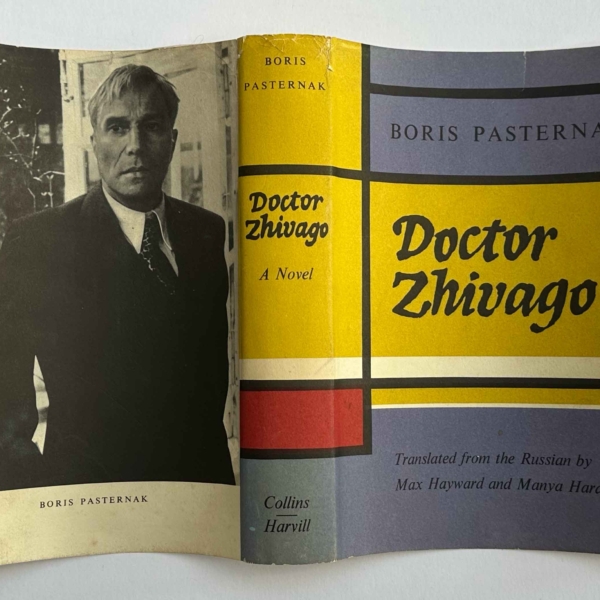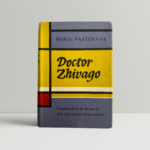Boris Pasternak – Doctor Zhivago – First UK Edition 1958
£485.00
A first edition, first printing of ‘Doctor Zhivago’ published by Collins Harvill in 1958. A very good book (or better), just light toning to the endpapers and a small name to the front endpaper – bound in blue cloth with titles – we have not handled this binding variant previously. In a very good unclipped wrapper with some repaired closed tears. A rare variant.
Doctor Zhivago by Boris Pasternak is an epic novel set against the tumultuous backdrop of the Russian Revolution and Civil War. It follows Yuri Zhivago, a sensitive physician and poet, as he navigates love, loss, and survival amid the chaos. Torn between his wife, Tonya, and his muse, Lara, Yuri’s personal struggles mirror the upheaval of a nation. The novel explores themes of individuality, the transformative power of art, and the enduring human spirit in the face of societal turmoil. Banned in the Soviet Union for its critique of revolutionary ideals, it won international acclaim and the 1958 Nobel Prize.
(We don't keep all of our stock in the shop, so send us an email if you're planning a trip to see a particular author or book.)
- Description
Description
A first edition, first printing of ‘Doctor Zhivago’ published by Collins Harvill in 1958. A very good book (or better), just light toning to the endpapers and a small name to the front endpaper – bound in blue cloth with titles – we have not handled this binding variant previously. In a very good unclipped wrapper with some repaired closed tears. A rare variant.
Doctor Zhivago by Boris Pasternak is an epic novel set against the tumultuous backdrop of the Russian Revolution and Civil War. It follows Yuri Zhivago, a sensitive physician and poet, as he navigates love, loss, and survival amid the chaos. Torn between his wife, Tonya, and his muse, Lara, Yuri’s personal struggles mirror the upheaval of a nation. The novel explores themes of individuality, the transformative power of art, and the enduring human spirit in the face of societal turmoil. Banned in the Soviet Union for its critique of revolutionary ideals, it won international acclaim and the 1958 Nobel Prize.

